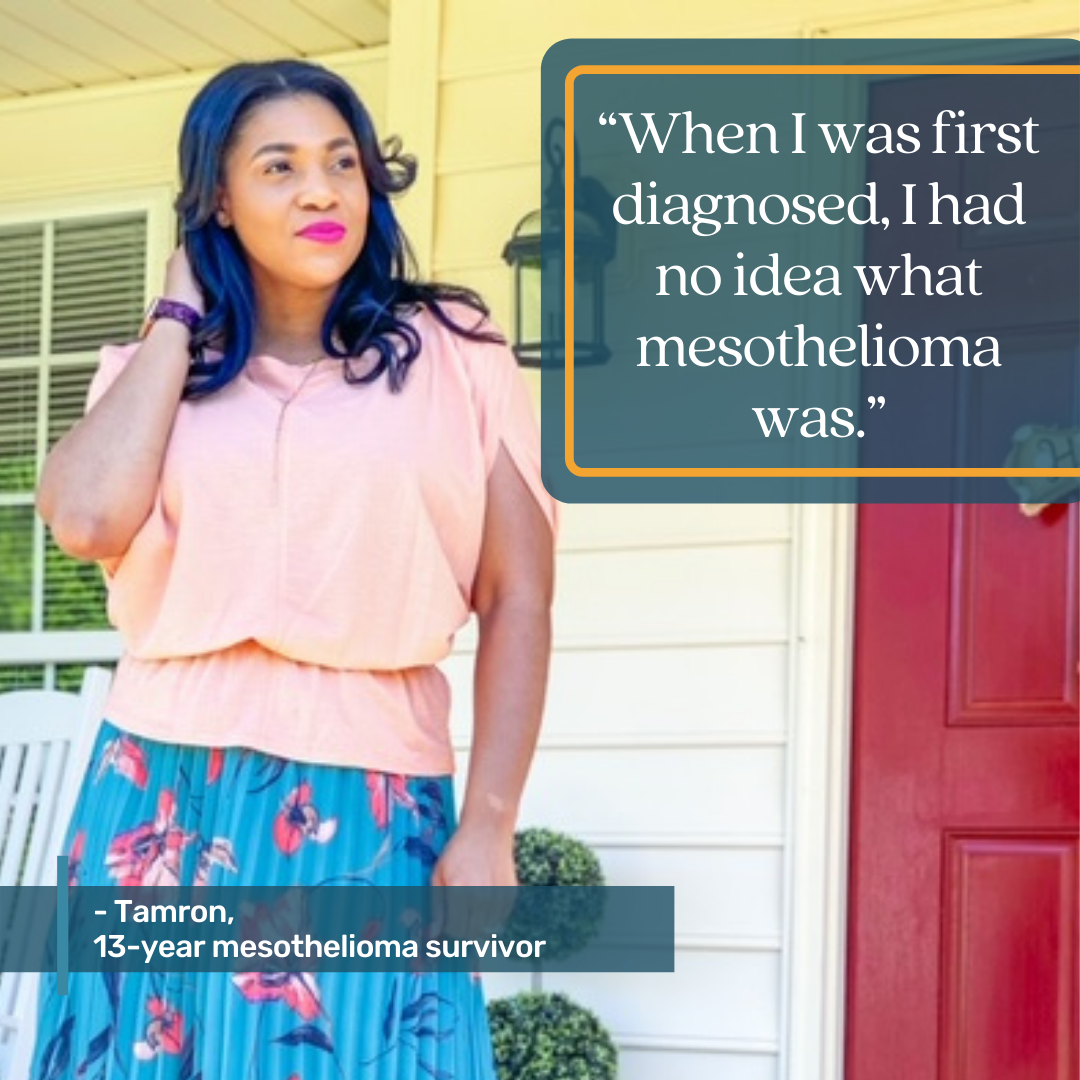“You’re a walking miracle,” is what doctors told me. “You had mesothelioma cancer? No!” is what people have said to me. “Wow! You really have a story to tell,” is what I’ve been told.
I was diagnosed with peritoneal mesothelioma in 2007, as a 21-year-old new mother. I’ve learned a lot since then, and now know how important it is to educate people about the disease.
Telling my story is one way to help people understand mesothelioma cancer, which I had never even heard of before I was diagnosed.
When It All Started
I was that college student, living my best life, taking all that college life had to give me. I was in a happy place at University of North Carolina at Pembroke, enjoying friends, the whole college experience, you name it. Then I found myself pregnant.
What a shock, right? It sure was to me and my boyfriend at the time, who is now my husband. To be honest, I was determined to finish college and told myself a thousand times that I wouldn’t be a college dropout. I arranged my schedule to fit my new life as a pregnant college student and did it for as long as I could.
Not only was I pregnant, but I found myself drained of energy all the time. I would sleep, sleep and sleep some more, then wake up sleepy. The nausea was out of control and I was prescribed medication. I was thinking, man, my pregnancy really has me tired.
I talked to my OB-GYN about it and she did a battery of tests that determined I was anemic. Not only was I anemic, but after several tests, dozens of iron pills and referrals to a hematologist, they discovered I had microcytic anemia. This means my red blood cells were smaller than normal so they couldn’t carry a lot of oxygen.
Fast forward to what was supposed to be an exciting day for us as we were waiting to learn the sex of our baby during an ultrasound. We found out we were having a boy, but not only that — I had a mass in my stomach. Doctors believed it to be a fibroid and assumed it was one reason why my iron was low.
Given this new information and how bad I was feeling, I decided to move back home where I had family there to help. Plus, my mom wanted me home so I could go to “better” doctors. She believed the doctors I was seeing weren’t helping me like she thought they should.
If I can be honest for a moment, I was upset with myself because I had to drop out of college — not knowing it would eventually take me six years to go back and finish. When I put my mind to something that I want to accomplish, I’m going to do everything I can within my power to do it. This is who I am. And if I can’t do it, I feel like I’m not living up to expectations.
Reality of a Mesothelioma Diagnosis
The day came, and I had a healthy baby boy we named Caleb. My new doctors were still monitoring what they thought was a fibroid. They prescribed birth control to shrink the mass and said they saw that all the time in young women.
Months passed, and the “fibroid” got bigger. So they scheduled a laparoscopy to retrieve it.
I remember this part like it was yesterday. The doctor came to the foot of my bed in the recovery room and said, “Ms. Cox, your surgery went well and you did well, but you have cancer. Mesothelioma to be exact.”
I don’t think I really processed it. So, this doctor was telling me I have cancer? One that I never heard of before? I had no idea what mesothelioma was. I’m too young, I thought. I just had a baby, and I’m not even married yet.

My mom and husband gathered information from the internet. Can you say, “bad news, bad news and more bad news?” Nothing they were reading was giving me hope and encouragement.
I learned that mesothelioma is mostly diagnosed in men over the age of 65. Research now shows women make up nearly a fourth of mesothelioma cases, but rarely someone as young as me. I didn’t fall into any of the usual categories.
Mesothelioma doesn’t get as much publicity as other cancers such as breast cancer or colon cancer. Luckily, there are more resources becoming readily available on the internet. Someone newly diagnosed with cancer is going to want to know what it is, so they will know what they are dealing with. If a specific cancer isn’t publicized enough, how will the patients and families know which direction to take?
Thriving as a Mesothelioma Survivor
As for my case, I like to say I was blessed to be in the right place at the right time. My mom worked at a hospital, and her coworkers told her more about the disease and the steps she should take to get me the help I needed.
So, after successful HIPEC surgery that included radiation, I have been cancer-free for 13 years and counting. I’m living my best life and thriving.
My son Caleb practically saved my life because he’s the reason I found out I had cancer. Although the doctors told me I couldn’t have any more children, I had three more, even after the diagnosis and treatment. I like to call them my miracle babies.
When I did learn more about mesothelioma and spoke to my doctor in detail about my options and future, I was hopeful. I held onto the hope that one day I would be cancer-free. Which, I am happy to say, I am!


